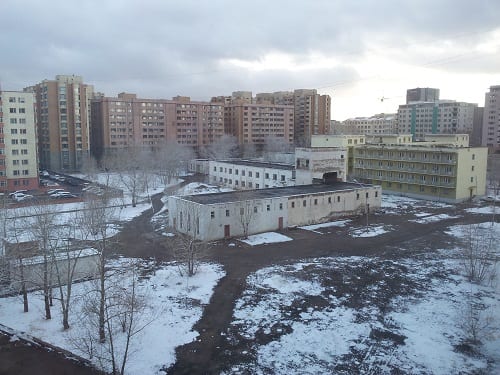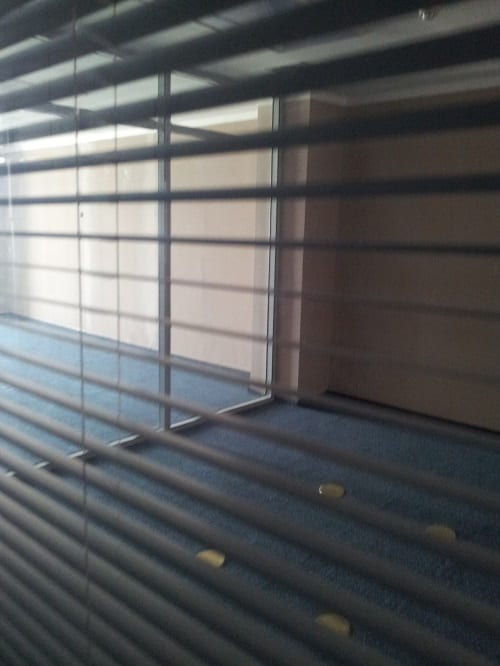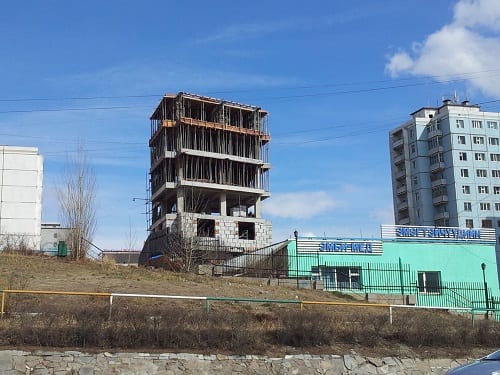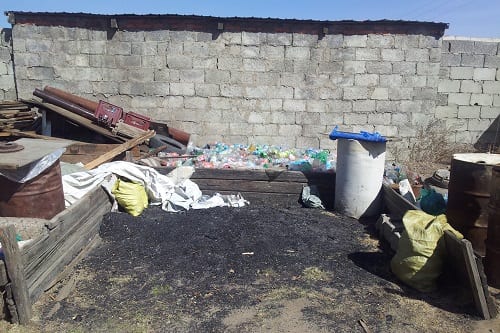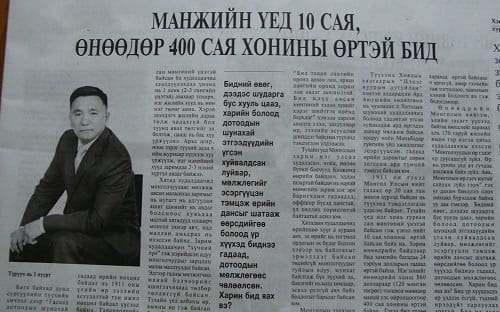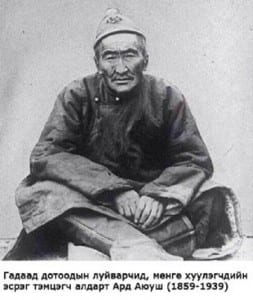Political Atmospheres in the Lead-up to the Parliamentary Elections, 2016
By ucsaar0, on 17 August 2016
This is the second in a series of posts about Mongolia’s 2016 parliamentary elections that were held on June 29th.
Ulaanbaatar is dusty, bleak and windy. Waiting for the bus, I am forced to seek momentary refuge in a KFC doorway when, out of nowhere, the sky turns an ominous brownish yellow. High-speed wind torpedoes through the city and lashes across my body filling my nose and mouth with dust. I haven’t learnt the art of always wearing a scarf around my neck to protect against such moments. The climate is unpredictable and so is the political atmosphere. Like political life itself the storm appears to come out of nowhere.
It’s early May 2016 and there is still some ice on the Tuul river. Snow can be seen on the mountains to the South. Workmen are starting to put down new pavements and are planting trees along the roadsides. The news reports that the police are undergoing crash courses in English. Everything must be in place for ASEM (the 11th Asia-Europe Meeting). In contrast, deserted construction projects lie in wait for new investment. Small shops are getting rid of stock before they close down, with sales offering up to 30-40% off. Rumours spread that a measles epidemic has erupted and infant moralities are spiralling out of control across the city. No doubt the government will hide all of this from its foreign visitors when they arrive later in the summer.
With the so-called ‘economic crisis’ two things have become apparent. Where the rich are stuck with unfinished property and dormant mining licences they cannot act on, the poor have lots of cheap goods, now mostly broken and used for something else, but which they bought on credit and have to pay off. Everyone talks about debt and its vast accumulation. It is certain that the Democratic Party will not be re-elected, but who will take their place? Will it be a coalition? Will any of the Independent candidates be elected? What of the new and emerging parties – why do they seem to implode through internal factions?
In the afternoon of the 4th May, I receive an SMS message from a friend that a Mercedes-Benz has just driven past a bus stop in the centre of town and thrown hundreds of thousands of tögrög out of the window at people waiting for the bus. Could this be a political move related to the elections? Is it just the tip of the iceberg of many more such events? If so, who is the man in the car? Through what connections has he got hold of such large amounts of cash? By the end of the day, and on (apparent) police investigation, it is confirmed that this was simply the action of a man who had been arguing with his wife. The speculations die out and the event is soon forgotten.
On the 11th April, a prominent politician and businessman’s offices are raided at the Bayangol Hotel, presumed, in part, due to the on-going ‘railway scandal’ where miles and miles of purchased tracks have been left to rust on the steppe. A large group of people, including the national judo team and various politicians come out to support him at the location. Special forces police officers can be seen seizing boxes and taking them away live on TV, but he’s never arrested himself. ‘We’re just really living in a society where the law is no longer the law’, his daughter laments. Speculations about internal factions aside, in this gesture of power we are invited to be reminded that the state holds ultimate power.
After the event, rumours circulate about future arrests and a list that has been drawn up with the names of those who might be targeted next. People in the countryside speculate that money laundering by big bosses has triggered flows of cash to purchase antlers from the forests. At night, people have been seen trying to sell their government-allocated shares to eager Chinese buyers (shares which the government later agreed to buy back), and during the day the atmosphere is intermittently hijacked by the stopping of traffic to allow blacked out cars with sirens to dart past with ASEM-related visitors as they speed through the city. The façade of buildings along the main roads are being painted. Motorway shoulders are being raised to hide unsightly slums.
The political atmosphere is characterised by a sense of fits and starts. Things suddenly emerge as if from nowhere. They are followed by a period of intense speculation and a search for connections and comprehension. Then, just as quickly, they seem to dissipate into the background again and things return to some sense of normalcy.
As the weather warms, the Tuul river begins to thaw. In the mornings men and women, sometimes with children in tow, come to gather plastic bottles along its banks, carrying them home in plastic woven bags on their backs. Every now and then these people travel back by bus from Zaisan sitting awkwardly with their enormous luggage slipping across the floor into the elites who live here. As it gets warmer, I walk across the river and up into the mountains beyond. A small trickle of water appears, but instead of this leading to a large torrent, a few days later the water disappears completely. People speculate that the government has syphoned off part of the river to provide water for the new ASEM buildings being built for the foreign visitors, providing further evidence, they lament, that they can’t ‘carrying the state’ correctly. Two days later, however, the river begins to flow again when the ice thaws further up in the mountains, and just as suddenly the speculations disappear.
Recalling these events hints at the way in which politics is currently discussed in Mongolia. That is as rumour about the motives of politicians and businessmen, rather than an actual discussion about policy. The drying up of the Tuul river and the rumours which surrounded it, as well as the lack of interest when the actual reason was revealed, is just one such case. In the lead up to the Parliamentary elections this year, people were constantly searching for meaning – connections and explanations – in actions they found difficult to read and understand. In fact this searching for meaning and speculation is what politics is in Mongolia. It is the speculation of connections and motivations beyond the visible and tangible. To understand politics – or to think politics – is to understand the underside of things, beyond the way things appear to the ordinary eye, to uncover the workings of a kind of magic or religion.
‘Nothing can be understood’, one friend recounted, ‘if the networks underneath are not known and understood’. He elaborated further, ‘if you don’t understand the motivations of individuals then politics in Mongolia is impossible to understand’. Searching for the motivations behind actions that seem strange is –sometimes – the only way people are able to process the wayward atmosphere that seems to characterise so much of political life in Mongolia. Speculation and circulation of rumours, of factions, motivations, alliances and actions of individuals dominates political talk. And while the new younger politicians are seen as potentially hopeful (they have not, as yet, the trail of speculated exchange of favours attached to them), they are all locked within the dominant parties and have little room to make a mark. It is as if, tightly held within alliances of debt and obligation, there is no room for new political visions to emerge. Everything is understood and explained as driven by personal business gains that bind people to each other and constrains as well as determines their actions.
In this atmosphere politics, as we might imagine it, appears a kind of empty shell. People feel they are living in an economic system (capitalism) rather than a political one (democracy now appears jaded and opaque). And because the economic system persists, regardless of who is in charge, politics itself appears defunct, a point that makes attaching the term ‘crisis’ to the word ‘economic’ a kind of political parody (cf. Roitman 2014, and Rebekah Plueckhahn on the political atmosphere of stalling and suspension after the elections). In this light, we might ask what work the term ‘crisis’ does in narratives about the economy in Mongolia? From one perspective it appears to be a political move to try to contain the moment in a specific temporal framework – a fallacy, of course, when it is now realised as the norm. Here, the ordinary is the speculation and incoherence of political life, there is no progress of access, or threat to another. The economic crisis is not an exception to the ordinary. There is, in many ways, a sense of a ‘crisis ordinary’, of […] ‘a process embedded in the ordinary that unfolds in stories about navigating what is overwhelming’ (Berlant 2011:10). In attending to these stories as they unfold, maybe politics is not such an empty shell after all. In these ways of navigating – sometimes overwhelming relations of debt, both monetary and social, and the complex entangled relations of obligation and favour that flow in their wake – life is always intensely political. It is just being played out in a different sphere from that which any election promises would have us believe.
All photos © Rebecca Empson.
 Close
Close


